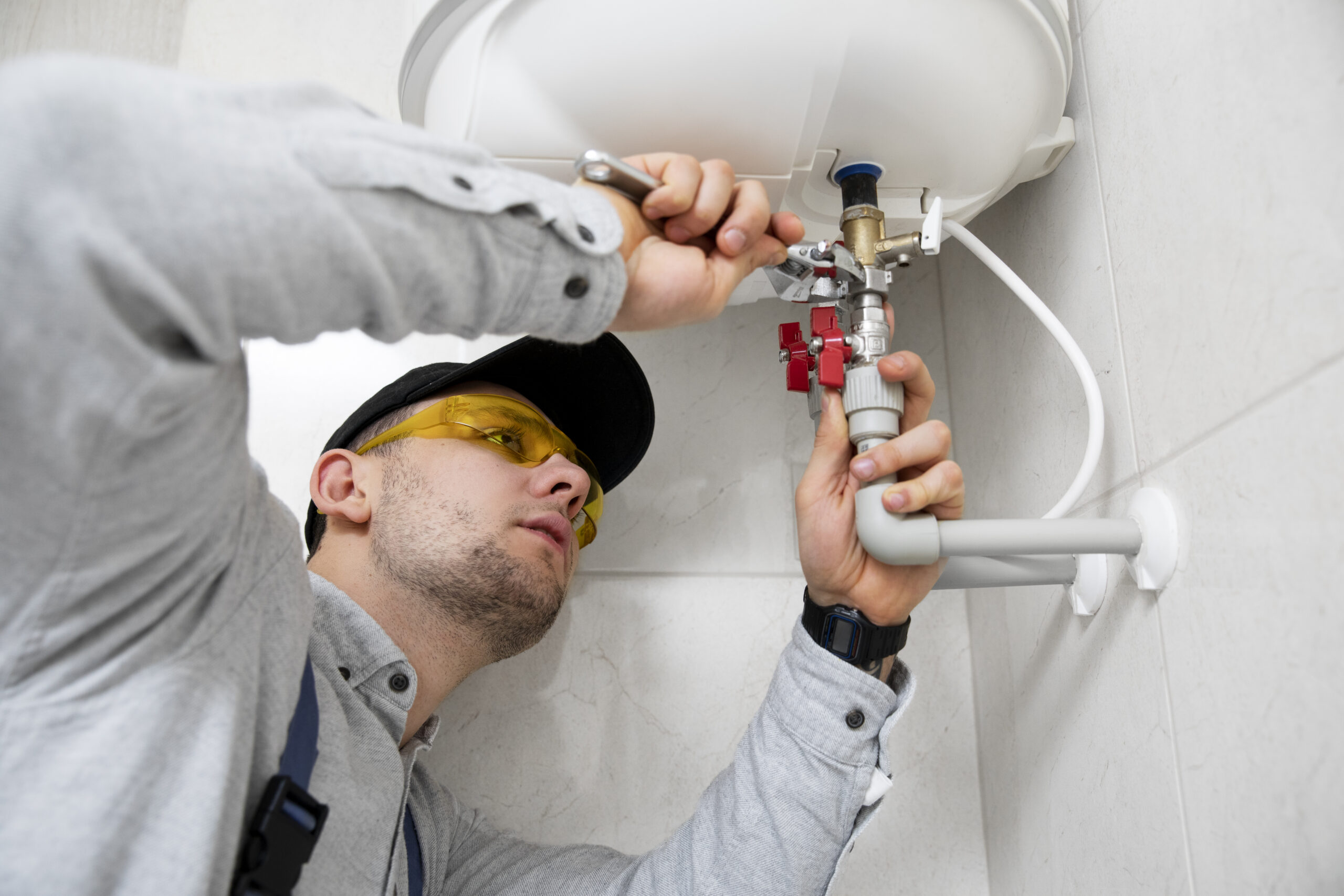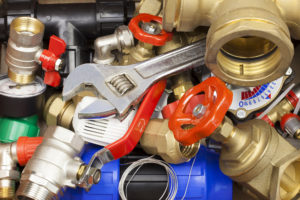Fast Fixes for Plumbing Emergencies: Actions to Follow Until Support Arrives
Fast Fixes for Plumbing Emergencies: Actions to Follow Until Support Arrives
Blog Article
The author is making several great pointers regarding What to Do While Waiting for an Emergency Plumber overall in this post underneath.

Plumbing emergencies can strike any time, creating tension and prospective damage to your home. Whether it's a burst pipeline, a clogged up drain, or a leaky tap, recognizing just how to handle the circumstance until a professional plumbing professional shows up can save you from further complications. This write-up supplies important emergency situation pipes suggestions to help you mitigate damages and gain back control during a pipes dilemma.
Turn Off the Water Supply
The very first step in any type of plumbing emergency situation is to turn off the supply of water. For localized issues, such as a dripping tap or toilet, turn off the shutoff near the fixture. When it comes to a significant leak or ruptured pipeline, locate your home's major water shut-off valve and turn it off quickly. Understanding the area of these valves beforehand can conserve important time throughout an emergency situation.
Address Little Leaks with Short-lived Repairs
Small leakages can rapidly come to be considerable problems if left untreated. Use these short-lived repairs until expert help shows up:
While these repairs aren't permanent, they can aid decrease water loss and damages.
Unclog Drains Pipes Securely
A clogged up drain can be a discouraging and untidy issue. Right here's how to tackle it:
If these methods do not function, prevent making use of too much pressure, as it may get worse the clog.
Handle Overflowing Toilets
An overflowing bathroom can trigger prompt disorder. Here's what you ought to do:
Turn off Your Hot Water Heater
In certain emergencies, such as a ruptured pipeline, it's important to shut down your hot water heater. This stops overheating or damage to the device when water quits flowing. Switch off the power supply to the hot water heater (electrical or gas) and let it cool down to stay clear of possible dangers.
Briefly Stop a Burst Pipeline
A ruptured pipe can lead to substantial water damage in minutes. To minimize the problem:
Call an expert plumbing technician quickly to address the issue permanently.
Handle Frozen Piping Very Carefully
In chillier climates, frozen pipelines are a typical emergency. If you presume a frozen pipe:
Stop Further Damages
Taking quick activity to reduce damage can conserve you time and money in the future. Here's just how:
. Have an Emergency Pipes Kit
Prepare a standard plumbing emergency situation kit to manage small issues successfully. Your package should consist of:
Having these devices on hand can make a considerable distinction in your ability to handle emergency situations.
Know When to Call a Professional.
While quick fixes can assist momentarily, certain plumbing concerns require instant specialist attention. Call a plumbing professional if:.
Immediately speaking to a professional guarantees the problem is settled appropriately and prevents additional issues.
Verdict.
Pipes emergencies can be overwhelming, however with the ideal expertise and devices, you can manage the situation properly until help arrives. By shutting off the water system, attending to little leakages, and making use of short-lived fixes, you can minimize damage and keep your home safe. Remember, these suggestions are short-term options; constantly seek advice from a qualified plumbing professional to take care of the origin of the trouble. Preparation and quick thinking are your finest allies in any type of plumbing emergency.
Expert Tips for Emergency Plumbing Repairs
Plumbing emergencies can be incredibly stressful and inconvenient. Whether it’s a burst pipe, a clogged drain, or a leaky faucet, these common plumbing emergencies need immediate attention to prevent further damage to your home. But before you panic, it’s important to understand the basics of plumbing repairs and the steps you can take to address these emergencies. In this article, we will share some expert tips to help you navigate through these situations and minimize potential water damage.
Identifying Common Plumbing Emergencies
Leaky pipes and faucets Clogged drains and toilets Burst pipes Low water pressure Water heater problems Essential Tools for Plumbing Repairs
Plunger: Useful for unclogging toilets and drains Adjustable wrench: Needed for tightening or loosening nuts and bolts Pipe wrench: Ideal for gripping and turning pipes Tape measure: Necessary for accurate pipe measurements Plumber’s tape: Helps create watertight seals Understanding Emergency Plumbing Services
Emergency plumbing services are designed to provide immediate assistance for unexpected plumbing issues that can cause significant damage to your home, business, or health. These services are typically available 24/7 and are staffed by experienced plumbers who can quickly diagnose and repair a wide range of plumbing problems.
When a plumbing emergency strikes, time is of the essence. Whether it’s a burst pipe flooding your basement or a gas leak posing a serious risk, emergency plumbing services ensure that help is just a phone call away. These professionals are equipped with the tools and expertise to handle any situation, minimizing damage and restoring your plumbing system to proper working order.
What Constitutes a Plumbing Emergency?
Burst pipes or water supply lines: These can cause extensive water damage and need immediate repair to prevent flooding. Gas leaks or suspected gas leaks: Gas leaks are extremely dangerous and require prompt attention to avoid potential explosions or health hazards. Sewer backups or overflows: These can lead to unsanitary conditions and significant property damage. Clogged drains or toilets causing water to overflow: Overflowing water can damage floors, walls, and other structures. Leaks or water damage causing structural damage: Persistent leaks can weaken the structural integrity of your home or business. No hot water or heating: A lack of hot water can be more than an inconvenience, especially in colder months. Common Causes of Plumbing Emergencies
Aging or corroded pipes: Over time, pipes can deteriorate, leading to leaks or bursts. Improperly installed or maintained plumbing fixtures: Faulty installations or lack of maintenance can result in unexpected failures. Tree roots or other debris infiltrating your sewer line: Roots can grow into pipes, causing blockages and backups. Frozen pipes or water supply lines: In colder climates, pipes can freeze and burst, leading to significant water damage. High water pressure or sudden changes in water pressure: Excessive pressure can strain pipes and fixtures, causing them to fail. Natural disasters such as floods or earthquakes: These events can disrupt your plumbing system and cause severe damage. Steps to Minimize Water Damage
Locate the water shut-off valve: Knowing where the valve is can help you quickly cut off the water supply to the affected area. Turn off the water heater: If there’s a risk of water coming into contact with the heating element, make sure to turn off the water heater to avoid potential accidents. Open faucets and drain pipes: By opening faucets and drain pipes, you can relieve pressure and empty any standing water. Collect and contain water: Use towels, buckets, or bins to collect water and prevent it from spreading to other areas of your home. https://leecountyplumbingandwellservice.com/expert-tips-for-emergency-plumbing-repairs/

I stumbled upon that review about when exploring the web. Sharing is caring. You won't know, you may just be helping someone out. Many thanks for being here. Come back soon.
Schedule Here Report this page